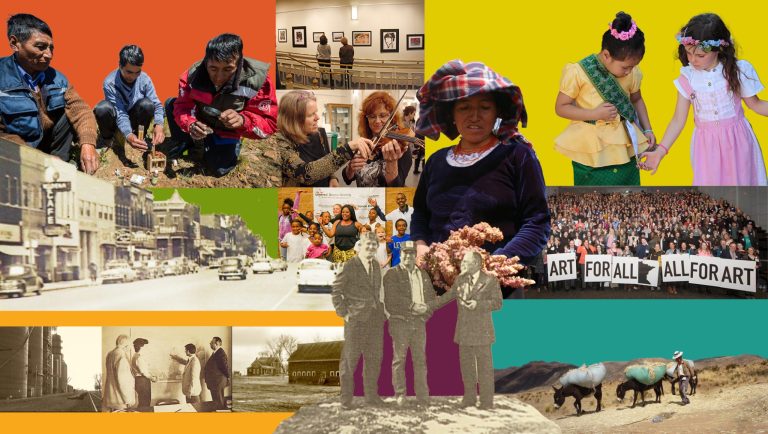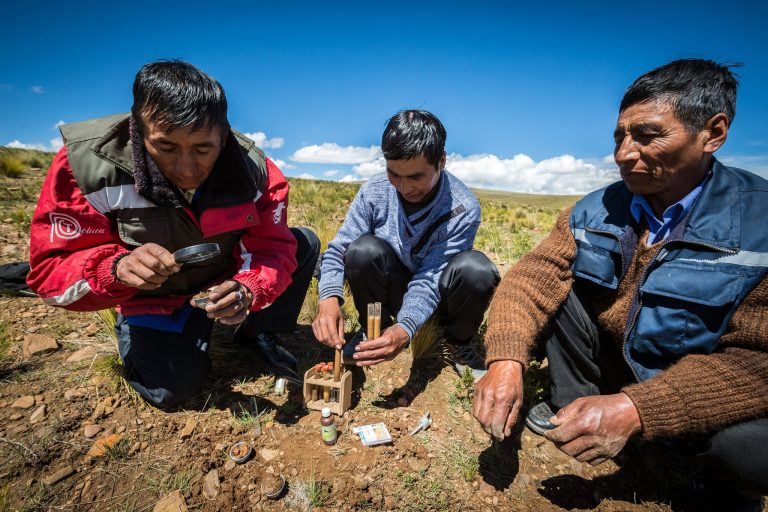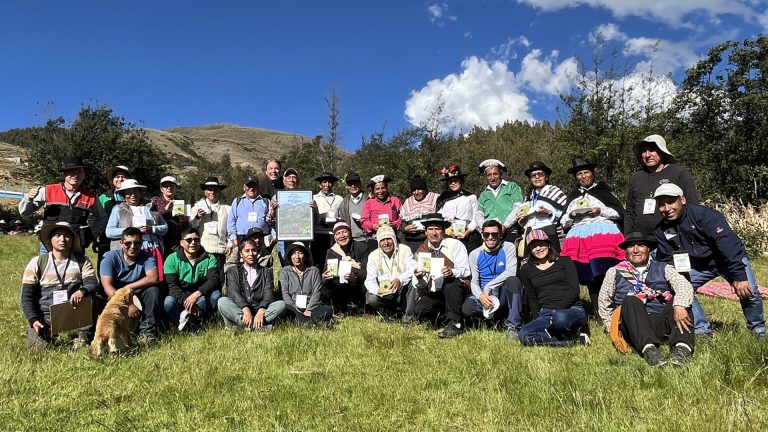McKnight Foundation, along with 24 leading philanthropies involved with the ለወደፊቱ ምግብ ለወደፊቱ አለም አቀፍ ጥምረት, today at COP28 in Dubai issued a joint call for a tenfold increase in funding for regenerative and agroecological transitions to address urgent global agricultural and environmental challenges. Together these philanthropies urge that to align food systems with the 1.5ºC goal of the Paris Agreement there is a need to phase out fossil fuel use, especially fossil fuel–based agrochemicals in industrial agriculture, and transition toward agroecology and regenerative approaches.
Supporting this call to action, participating philanthropies today released a new report, "Cultivating Change: Accelerating and Scaling Agroecology and Regenerative Approaches,” which highlights the transformative potential of regenerative, agroecological, and Indigenous food systems and calls for a substantial increase in funding to 2040 and beyond.
Commissioned by philanthropic foundations active in food systems transformation, the research shows that a tenfold increase in investment is required to transition to more resilient, diverse, equitable, and healthy food systems:
- The estimated cost of a global transition to agroecology and regenerative approaches is USD 250-430 billion per year, less than 5% of the hidden costs of at least USD 12 trillion per year — 10% of global GDP — that include hunger and malnutrition, environmental damage, lost worker productivity, and health care.
- Current philanthropic, public, and private investments in agroecology and regenerative approaches are estimated to be USD 44 billion per year leaving an estimated USD 206-386 billion gap. A tenfold increase is required to support this much-needed transformation.
- Out of USD 635 billion in annual public agriculture subsidies globally, over half (USD 385 billion) result in harmful environmental impacts, and work against a transition to regenerative, agroecological food systems.
- Shifting these subsidies toward agroecological and regenerative approaches is critical.
Investment at the scale proposed would mean half of all food produced could be regenerative and agroecological by 2040, and all would be transitioning to more sustainable approaches by 2050. The return on investment would be high and exponential.
Evidence from around the world has shown that land and aquatic food systems managed for health, equity, and sustainability result in a cascade of positive results, from more stable yields, crop resilience, and higher incomes for farmers, fishers, and food producers, to improved nutrition and food security and enhanced biodiversity.
Regenerative and agroecological food systems are under-resourced, with public and private subsidies and investment instead propping up fossil fuel–intensive food systems that are exacerbating climate change, driving biodiversity loss, and eroding public health. Food systems account for one-third of greenhouse gas emissions እና at least 15% of fossil fuel use. Yet only 3% of climate finance is allocated to food systems and an even smaller fraction to farmer, fisher or Indigenous-led organizations. Climate finance must be scaled and directed toward agroecology and regenerative food systems.
“Our world is at a critical juncture, and our choices will reverberate for generations to come. We are collectively calling on our peers to up their philanthropic investments and join us in cultivating a just and equitable future,” said Anna Lappé, Executive Director, Global Alliance for the Future of Food.
The philanthropic partners who are participating in this initiative address issues related to global food and agriculture at different scales, on diverse issues, and from a multitude of perspectives. They are: African Climate Foundation, Agroecology Fund, Biovision Foundation for Ecological Development, Builders Initiative Foundation, Children’s Investment Fund Foundation, ClimateWorks Foundation, Erol Foundation, European Climate Foundation, Funders for Regenerative Agriculture, Global Alliance for the Future of Food, GRACE Communications Foundation, Instituto Ibirapitanga, IKEA Foundation, India Climate Collaborative, Instituto Clima e Sociedade, Laudes Foundation, Macdoch Foundation, McKnight Foundation, Oak Foundation, Platform for Agriculture and Climate Transformation, Porticus, Robert Bosch-Stiftung Foundation, The Rockefeller Foundation, Thread Fund, Walton Family Foundation.


